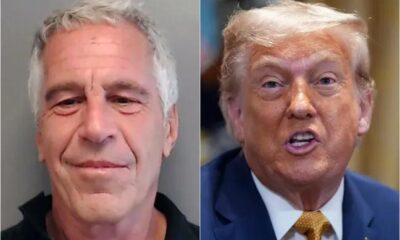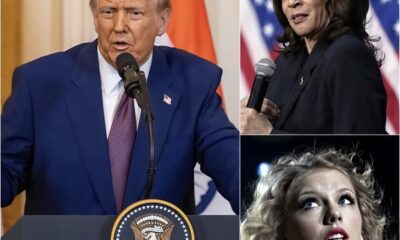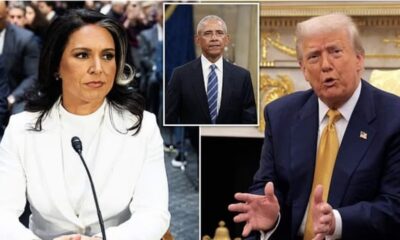NEWS
“I Can’t Believe He Said This on Live TV” – Trump Blames Antifa for His Inability to Bring a Woman to Climax Even Once — Watch the Full Video to See What Happened”

In what may be one of the most eyebrow-raising moments in recent live television history, former President Donald Trump made a startling and highly personal claim during an interview, attributing a deeply private issue to a political group. According to the footage that has now gone viral, Trump publicly blamed Antifa, the loosely organized anti-fascist movement, for what he described as his failure to bring a woman to climax even once. The remark immediately caught viewers off guard and sparked a firestorm of reactions across social media, late-night talk shows, and political commentary circles.
The interview began as a typical political discussion but quickly veered into territory that left both the audience and the interviewer visibly stunned. Trump, speaking in his characteristic direct and unfiltered manner, framed the issue as an external interference in his personal life. While the claim has not been substantiated in any way, the mere fact that he made such a statement publicly has caused a wave of disbelief and incredulity. Analysts are calling it unprecedented, noting that it is extremely rare for any politician—let alone a former president—to address intimate sexual matters in such a direct and politically charged context.
Reactions to the statement have been swift and varied. Social media platforms exploded with a mix of amusement, outrage, disbelief, and speculation. Memes and reaction videos began circulating within minutes of the broadcast, with many users questioning both the plausibility of the claim and the motivations behind making it publicly. Some commentators have framed it as a strategic move to shift attention away from other ongoing controversies, while others see it as yet another example of Trump’s unfiltered communication style, which consistently blurs the line between personal confession and political commentary.
In political circles, the statement has added fuel to ongoing debates about decorum, credibility, and the role of public figures in discussing intimate personal matters. Legal experts and communication analysts alike have weighed in, noting that regardless of the truth or falsehood of the claim, the impact on public perception is undeniable. It is a rare instance where a highly personal admission intersects with political rhetoric, raising questions about boundaries, media responsibility, and the ways in which sensational statements shape the public conversation.
The full video of the interview, which has been widely shared online, shows Trump maintaining his composure while making the claim, though his comments are met with audible gasps and laughter from the audience at certain points. The interviewer, attempting to navigate the unexpected turn in the conversation, asked follow-up questions, but Trump quickly pivoted back to broader political themes, leaving viewers to replay and dissect the moment for hours afterward.
While some see the statement as a bizarre attempt to blame outside forces for personal shortcomings, others interpret it as part of Trump’s larger pattern of controversial and attention-grabbing remarks. Regardless of interpretation, the incident has already cemented itself as one of the most talked-about moments in recent television history, and it is certain to be referenced repeatedly in media coverage, political commentary, and online discourse for days to come.
What remains clear is that this moment has transcended ordinary political commentary, entering the realm of viral media spectacle. From late-night talk shows to trending hashtags, the conversation surrounding Trump’s claim about Antifa and his personal life shows no signs of slowing down. Whether audiences view it as comedy, tragedy, or political theater, it is undeniable that this statement has captured the attention of millions and will remain a defining moment in the era of unfiltered live television.

























